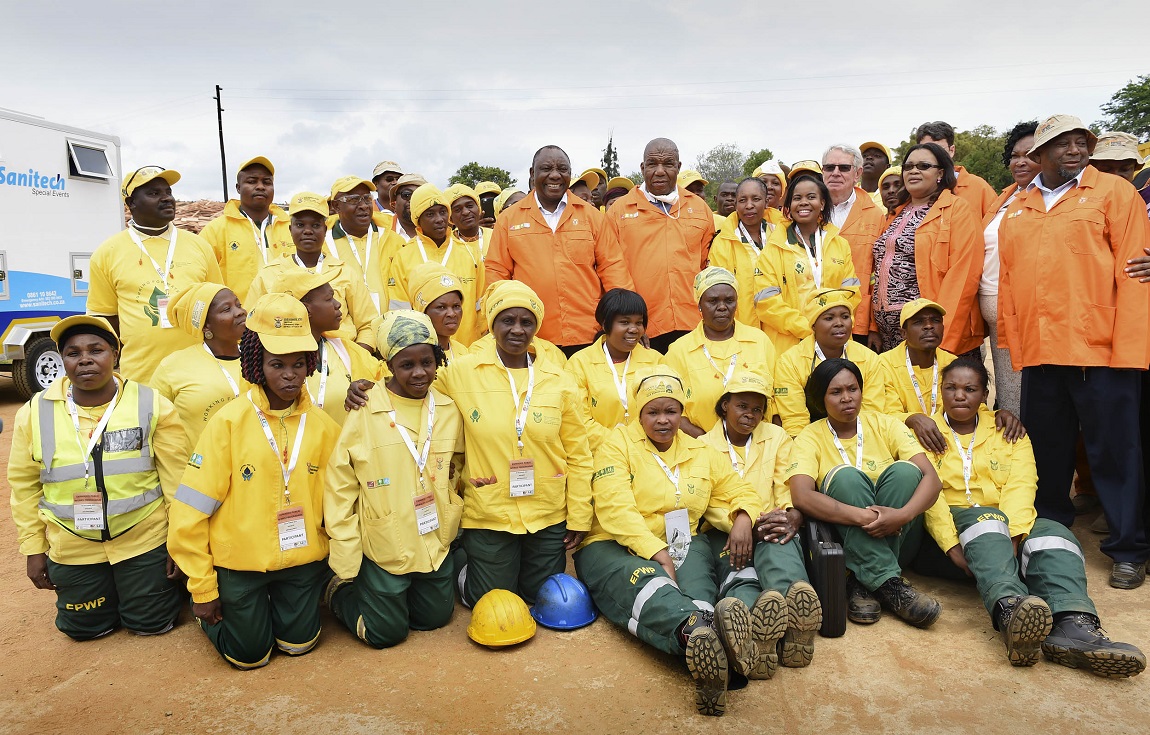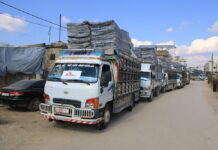
Communities and public employment programmes in particular, have a critical role to play in the fight against gender-based violence, writes PALESA MATABOGE.
This is in line with one of the outcomes from the National Declaration arising from the recent Presidential Summit against gender-based violence (GBV) and femicide. The Declaration emphasises that: “Political and community leadership must support and champion the cause of eradicating gender-based violence and femicide.”
At Gender-Based Violence Summit, Ramaphosa Calls For ‘Tangible Solutions’
The statement above reiterates the critical role of communities owning the fight against GBV, as these are the people that are largely affected by the scourge. The South African Community Works Programme provides a good platform through which this can be done.
South Africa faces high rates of unemployment, inequality, poverty and corruption. These are contributing factors to the high rates of violence and crime in the country. As a response to the high rates of unemployment, the South African government enacted public employment programmes.
An example of such a programme in South Africa is the Community Works Programme (CWP). The programme was enacted in 2008 as the government’s response to the high unemployment rates experienced in South Africa. The CWP is a public employment programme that provides two days of work per week to unemployed and underemployed people in economically marginalised communities. The CWP aims to be an employment safety net, ensuring a basic stable income for the participants.
Employment programmes are key tools that can be devised to protect the most vulnerable as they facilitate social and economic inclusion among citizens. However as this is an overhauling feature of public employment programme, we fail to recognise the impact that these programmes can have in violence prevention.
Over the last year we have seen an avalanche of cases of women suffering at the hands of men. The rate of GBV in South Africa has become an example of an abnormal situation becoming normalised. Women are assaulted and brutally murdered on a daily basis by men that they love, trust and honour. This was observed at the Presidential Summit, and as such provided an illustration of the gravity of the crisis at hand. Different women came and shared their lived experiences, their hurt and pain that they have to carry every day. This was pain that was not only caused by violence against them and their loved ones, but also hurt and pain caused by how the justice system consistently fails women. Women bear the brunt of a befouled system which upholds and favours patriarchy.
Somehow, South Africa is applauded for its progressive democratic and social rebirth. This is because of the country’s transition to democracy has ushered an awareness of human rights: gender rights and gender equality. In its constitution, South Africa has made efforts to articulate the need to address gender inequality. In addition, the South African government has implemented affirmative action programmes and ratified international treaties which seek to eliminate all forms of discrimination based on sex, sexual orientation or gender.
Although interventions have been made to address gender equality, South Africa still has atrociously high rates of GBV. As women’s right to physical freedom is constrained daily, it is imperative that in fighting this misdemeanor against women’s bodies that the government considers including community members.
The National Declaration arising from the Presidential Summit makes reference to and emphasises the need for the following:
(1) Political and community leadership must support and champion the cause of eradicating gender-based violence and femicide;
It is imperative that ordinary citizens of the country locate themselves in the fight against GBV. A way of achieving this is through working with people that are employed in public employment programmes such as the CWP. One of the key elements of the CWP is to take part in useful work, which is defined as an activity that contributes to the public good, community good or social services. Currently, the Centre for the Study of Violence and Reconciliation in conjunction with the CWP are running a programme that seeks to curb violence and build social cohesion in communities. Through this programme, awareness-raising initiatives are spread in communities. Information is not only shared with victims of violence, but perpetrators are also made aware of GBV and the plight of women. Information shared is usually kept in close-knit circles of the elite, educated and the already informed. However, working with CWP participants does not only capacitate community members, but through this programme information is relayed to ordinary South Africans who are mostly affected by gender based violence. This empowers women.
The government must include people on the ground through providing training to CWP participants and equipping them with basic counselling skills to enable them to work in victim empowerment centers. Through this initiative the Community works programme can collaborate with social workers and GBV organisations. Lastly, CWP participants should be trained to raise awareness in schools and at early child development centers as children are affected by the scourge.
Currently, the demographic statistics of the CWP shows that 84% of CWP participants are women. When young and old grassroots South African women are equipped to engage in this battle in a meaningful way, South Africa will be able to curb GBV. We cannot afford any more brutality on women. South Africa must be proactive.
Palesa Mataboge is a Researcher in the Urban Violence Prevention Programme at the Centre for the Study of Violence and Reconciliation. She has a Masters degree in Demography and Population studies.
The views expressed in this article are the author’s own and do not necessarily reflect the editorial policies of The Daily Vox.
Featured image by Siyasanga Mbambani (GCIS)








